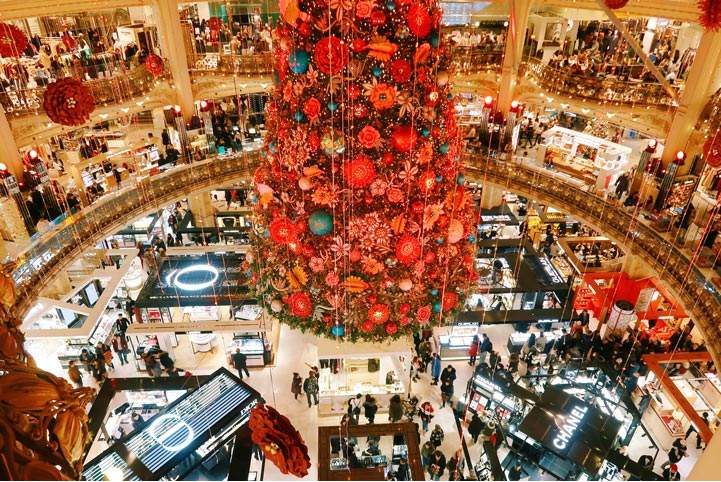December’s Christmas trading results give insight into how different sectors are performing in the current economic climate. Some key takeaways include an ongoing emphasis towards essential spend over non-essential spend, and consumers looking to enhance their Christmas dining experience over indulging on big-ticket items
With consumer confidence on a gradual rise alongside easing inflation, many hoped for positive Christmas trading results. This was true to some extent but was skewed by sector, with grocery and F&B boasting positive results year on year (YoY). Meanwhile, bigger-ticket and non-essential spend was typically down as cash-strapped consumers looked to prioritise their dining and leisure experience. There has been a continued emphasis on omnichannel retailing, with consumers favouring in-store shopping experiences. This has contributed to the success of physical locations outperforming online pure plays, whose results were lower than previous years. The results published by retailers do not always show the full picture, with the ONS reporting retail volumes being down -2.1 % and values being up +2.3% in an inflationary environment. The likely result is that profits may be improving but margins are thinning.
Grocery
If a sector had to be crowned the winner of 2023 Christmas trade, once again the title would have to go to grocery, with grocers who published results averaging a +7.5% total sales growth YoY. Key retailers who boasted growth include discount retailers Aldi (+8%) and Lidl (+12%) which continued to attract a more diverse consumer base by taking advantage of the current emphasis on discount retail, thus increasing their market share.
This growth coincides with grocery spend data by Lloyds, which reported both value (+6%) and volume (+2%) growth in December YoY. The ONS, however, published a decline in grocery volume growth of -2.7% in YoY December. These differences cloud the overall picture and imply that the results may not be as positive as they first look.
Fashion
Many fashion retailers also reported a challenging retail environment this Christmas, with total sales down on average -4.1% YoY due to a range of factors, including tightened consumer budgets and high promotional activity across the sector. Sales decline may be partly attributable to retailers starting promotional activity earlier in 2023, hampering December spend. The luxury fashion sector similarly felt the pinch of the challenging economic backdrop, with Burberry, Mulberry and N Brown reporting declines in sales growth YoY.
Nevertheless, a number of fashion brands reported positive Christmas trading. Next, for example, despite being up against strong prior-year comparatives, saw an increase in both in-store and online sales. Online sales were the key performer for the brand, highlighting the strength of its online platform which has a wide offering, quick delivery and varying price points. M&S also experienced similar success, with online trade (+10.9%) outperforming its physical locations (+2.0%) for its Clothing & Home ranges, reflecting the improvements the retailer has made in its digital offer. However, some internet sales on a like-for-like (LFL) basis may appear stronger due to lower figures in 2022.

Household goods
The current economic headwinds, however, have meant that many consumers have looked to tighten their discretionary spend over the period, and prioritised essential over non-essential spend. As a result, we have seen a negative impact overall on the household goods sector. Consumers cut back on electrical, DIY and big-ticket items as they balanced spending decisions in the lead-up to Christmas. Despite this, discount goods retailers such as B&M and Poundland had yet another successful trading period this year, as consumers traded down where possible.
Food and beverage
The F&B market has continued to benefit from non-Covid-influenced periods and the return of the Christmas party, with total sales up +9.5% on the previous Christmas. This coincides with data published by the CGA RSM business tracker, which reported a LFL sales growth of +9.6% for pubs, and +8.8% for the wider hospitality sector in December. Food overall brought down this average, as bar sales were stronger during December (as reported by J D Wetherspoon) as people enjoyed a festive pint.
Health and beauty
The health and beauty sector similarly benefitted from Christmas trade, with an average sales growth of +5% YoY. Superdrug posted a LFL sales growth of +7.1% and documented a strong emphasis on its own brand collection, in which sales were up +10%. This encapsulates the consumer switch towards affordability for essential items in a tightened economic environment, with 45% of UK health and beauty shoppers trading down to cheaper toiletries or switching to a cheaper toiletries retailer (GlobalData).
